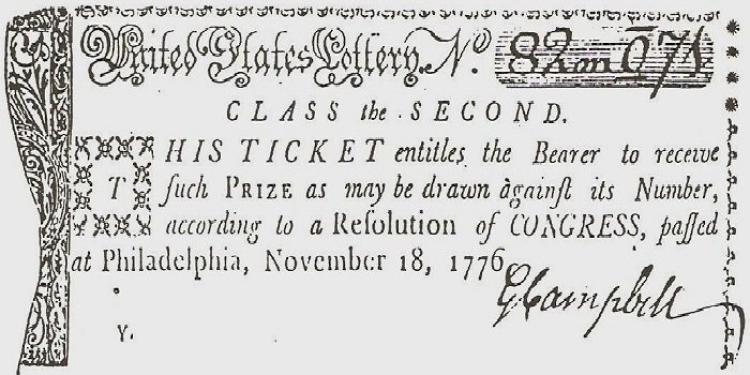A History of Gambling in America (part2)
Posted: July 25, 2015
Updated: October 6, 2017

The beginning of the fight for American Independence was funded by the lottery
Gambling in America started a collective culture between two completely different societies. The first being the Native American’s who had their own centuries old gambling culture that was rooted in comradery, tribal pride and overall spirituality. Through various sports including lacrosse, checkers and organized combat, the original Americans had their own system of wealth redistribution that avoided bloodshed.
● A new lottery was made to fund the fight for independence from the British
● Jefferson kept meticulous records of his backgammon winnings
● The first casinos were in New Orleans under the name “carpet factories”
The early English settlers had their own gambling culture that came from Britain’s established culture. Although US gambling news were more practiced by the aristocracy in England, all the settlers across the water were actively involved. It wouldn’t be long before lotteries would soon provide valuable building blocks to new settlement infrastructure. After a ban on gambling due to overindulgence, a new lottery was made to fund the fight for independence from the British Empire.
Lotteries created funding for the war

Although The National Lottery failed to reach their goal of USD 1 million in revenue, they still had enough to make a formidable reserve. As the war would ensue, the founding fathers were contemplating their own ideas about gambling and the effects it would have on their new society. Thomas Jefferson, principal author of the Declaration of Independence, proclaimed that “gambling corrupts our disposition and teaches and us a feeling of hostility towards our fellow man.”
Despite his feelings, Jefferson kept meticulous records of his backgammon winnings. After the victory in the Revolutionary War, the United States saw a large amount of growth and prosperity. Following of course, was a new found attitude that embraced gambling among all level of society. This was a time when people could gamble without limit before the advent of US gambling laws.
Out of the early 1800’s, no politician matched the risk taking lifestyle of the backwoods gentlemen known as Andrew Jackson. Once called the “most rollicking, roaring, horse racing, game cocking, card playing, mischievous fellow that ever lived. The retired revolutionary general, was rumored to have shot a man over a dispute about a gambling debt. Jackson, in his childhood, gambled on cockfights alongside grown men.
While in college, Jackson bet his entire inheritance on game of dice.
Jackson’s passion was horse racing where he owned several horses. The most famous horse was called Truxton who was involved in a famous match race against a horse name Greyhound. Because Truxton was put through an intense training regimen by Jackson prior to the race, most people bet against Jackson. As plantation farmers bet their cotton and tobacco on Greyhound, Jackson bet all his other horses plus all the clothes he could carry on Truxton.
From gambling president Jackson to the Carpet factories: gambling takes hold

Jackson’s horse was victorious in all heats and he quickly bought Greyhound after the races. After, he described himself as “eased in his finances and replenished in his wardrobe.” As President of the United States, Jackson regularly attended the national raceway. Bringing along enough congressmen with him, often sessions would be postponed until the last races finished. Jackson left the “bar raised” on gambling in the U.S. as New Orleans would bring it to new heights.
The creation of “carpet factories” served as the first gambling casinos in the United States. Gambling became so prevalent throughout the U.S., that congress contemplated instilling US gambling laws that fully legalized gambling. Unfortunately, protests from policemen, who made their livelihood accepting bribes and payments from establishments, convinced congress to not pursue such action.
The moralists, people from deeply religious roots who wanted to create a better American society, decided to take action against gambling. By that time, there were whole towns that were centered around gambling. One such town was Vicksburg, Mississippi that had a symbiotic relationship with river commerce. As gambling halls were more prominent, anti-gamblers wanted to rid themselves of the stigmas associated with uncultivated, unstable frontier society.
Their beliefs were also supported by the fact that these gambling hall or “Hells” were infested with crooked gamblers that regularly cheated patrons. In 1835, citizens demanded that the gamblers left town. Although most left, a small group of gamblers held out in one of the “Hells.” Finally, the citizens formed vigilante groups and went from Hell to Hell forcing whatever gamblers were left. In the final strike, the vigilantes stormed the casino with guns, dragged out the gamblers and hung them in the street.












